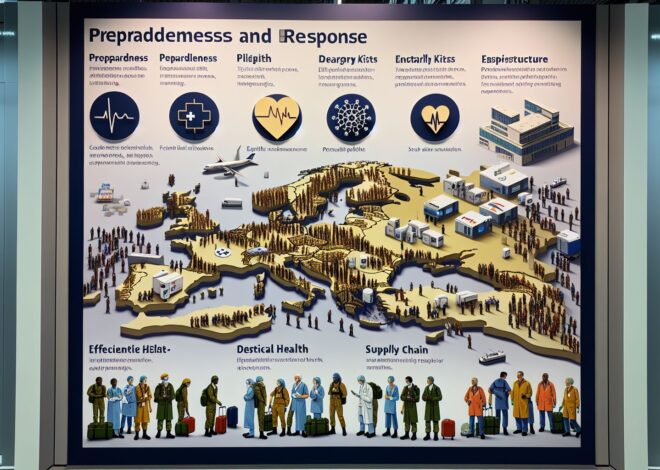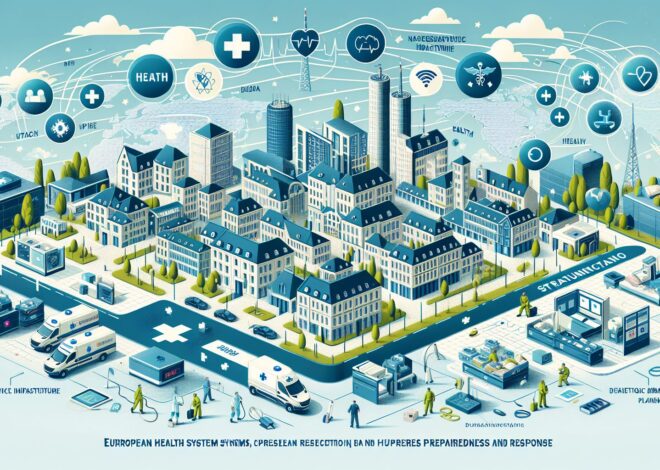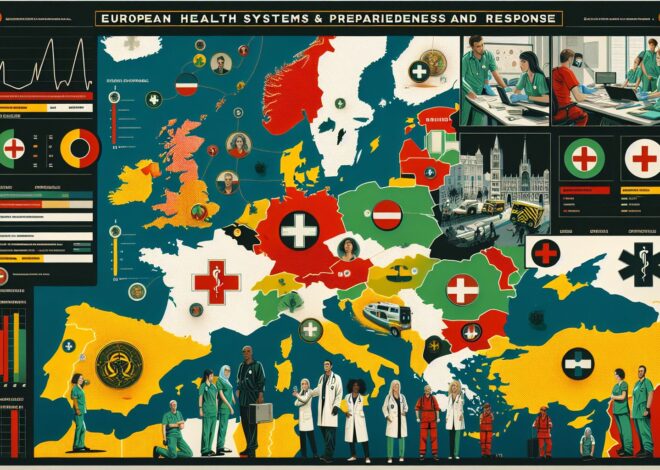
The Preparedness and Response of European Health Systems: A Call to Action
As the COVID-19 pandemic continues to wreak havoc across the globe, the preparedness and response of European health systems have come under intense scrutiny. Health professionals, policymakers, and concerned citizens alike are grappling with the challenges of containing the spread of the virus, treating those who have fallen ill, and mitigating the impact on society at large. In this blog post, we will explore the current state of European health systems in the face of the pandemic and discuss what can be done to strengthen their preparedness and response efforts.
Preparedness
Preparedness is key to effectively responding to any public health crisis, and European health systems have made significant strides in this area in recent years. Many countries have invested in building robust healthcare infrastructure, stockpiling essential medical supplies, and developing comprehensive emergency response plans. However, the scale and severity of the COVID-19 pandemic have tested the limits of even the most advanced health systems in Europe.
One of the main challenges faced by European health systems in terms of preparedness has been the shortage of critical care beds and ventilators. The sudden influx of patients requiring intensive care has overwhelmed hospitals in several countries, leading to difficult decisions about resource allocation and patient triage. In addition, the lack of personal protective equipment (PPE) for healthcare workers has put them at risk of infection, further straining an already burdened system.
Response
Despite these challenges, European health systems have demonstrated remarkable resilience and adaptability in their response to the pandemic. Health professionals on the frontlines have shown incredible bravery and dedication in caring for patients, often at great personal risk. Policymakers have implemented a range of interventions, such as lockdowns, social distancing measures, and mass testing, to slow the spread of the virus and protect vulnerable populations.
However, the response of European health systems has not been without its flaws. The lack of coordination and communication between countries has hindered efforts to contain the virus on a regional and global scale. Inconsistent messaging from authorities has led to confusion and mistrust among the public, making it harder to enforce public health guidelines and control the spread of the virus.
A Call to Action
In light of these challenges, it is clear that more must be done to strengthen the preparedness and response of European health systems to future public health crises. Health professionals must be provided with the resources and support they need to safely care for patients, including adequate PPE, training, and mental health services. Policymakers must work together to develop a coordinated approach to managing the pandemic, sharing information and best practices to ensure a unified response.
Concerned citizens also have a role to play in supporting the efforts of European health systems. By following public health guidelines, staying informed about the latest developments, and advocating for policies that prioritize the health and well-being of all members of society, individuals can help mitigate the impact of the pandemic and prevent future outbreaks.
In conclusion, the preparedness and response of European health systems to the COVID-19 pandemic have been a mixed bag of successes and challenges. While there is much to be proud of in terms of the dedication and resilience of health professionals and the quick action of policymakers, there is also room for improvement in areas such as resource allocation, communication, and coordination. By working together and learning from the lessons of this pandemic, we can strengthen our health systems and better protect the health and safety of all citizens in the future.



